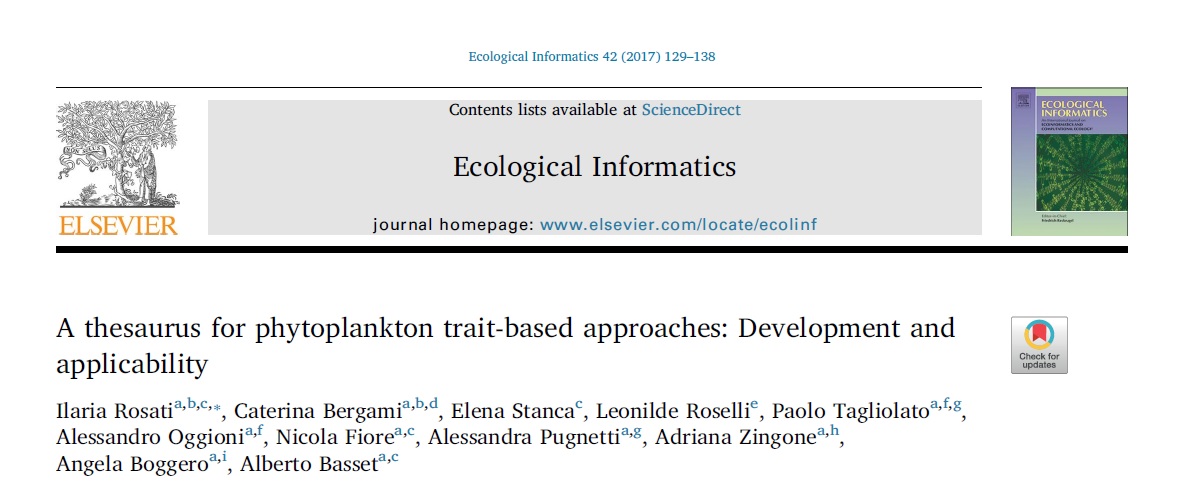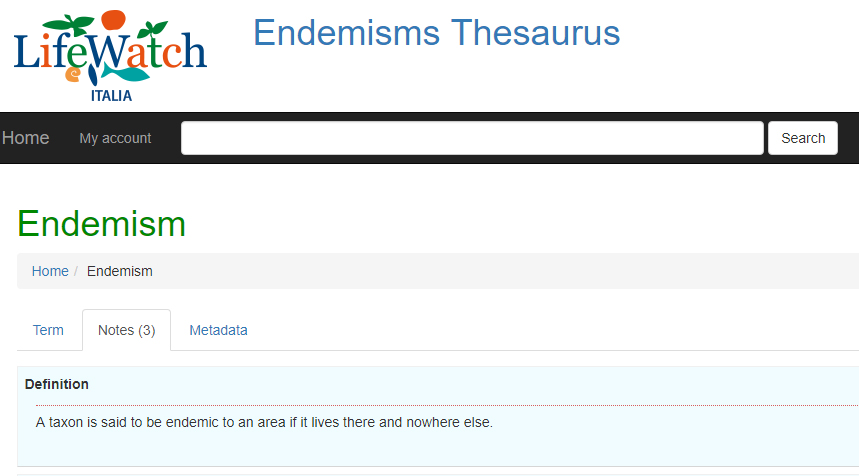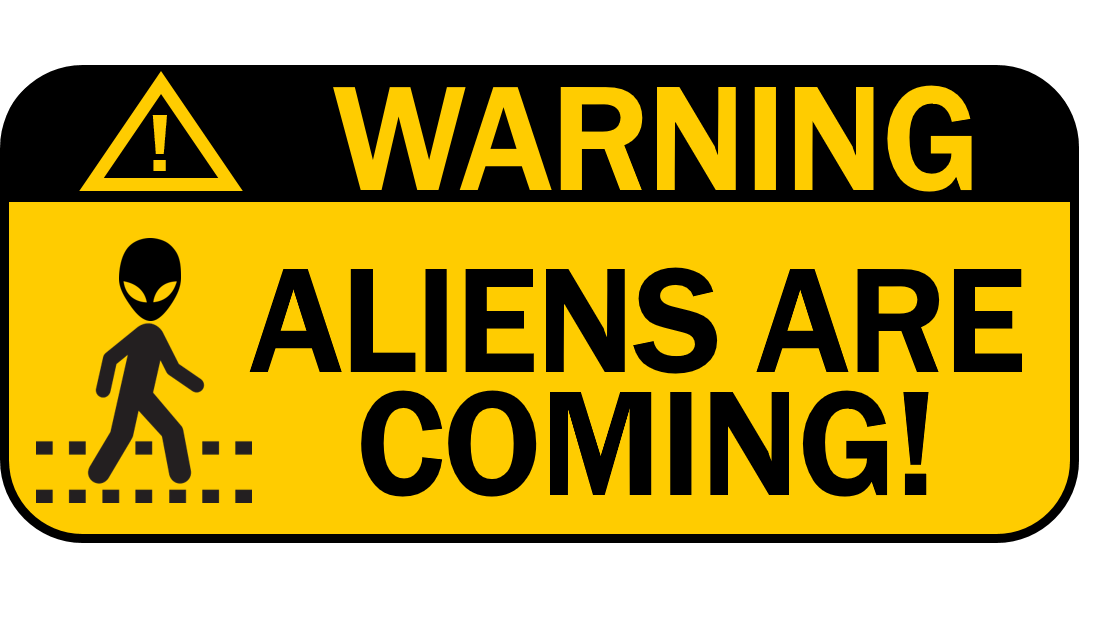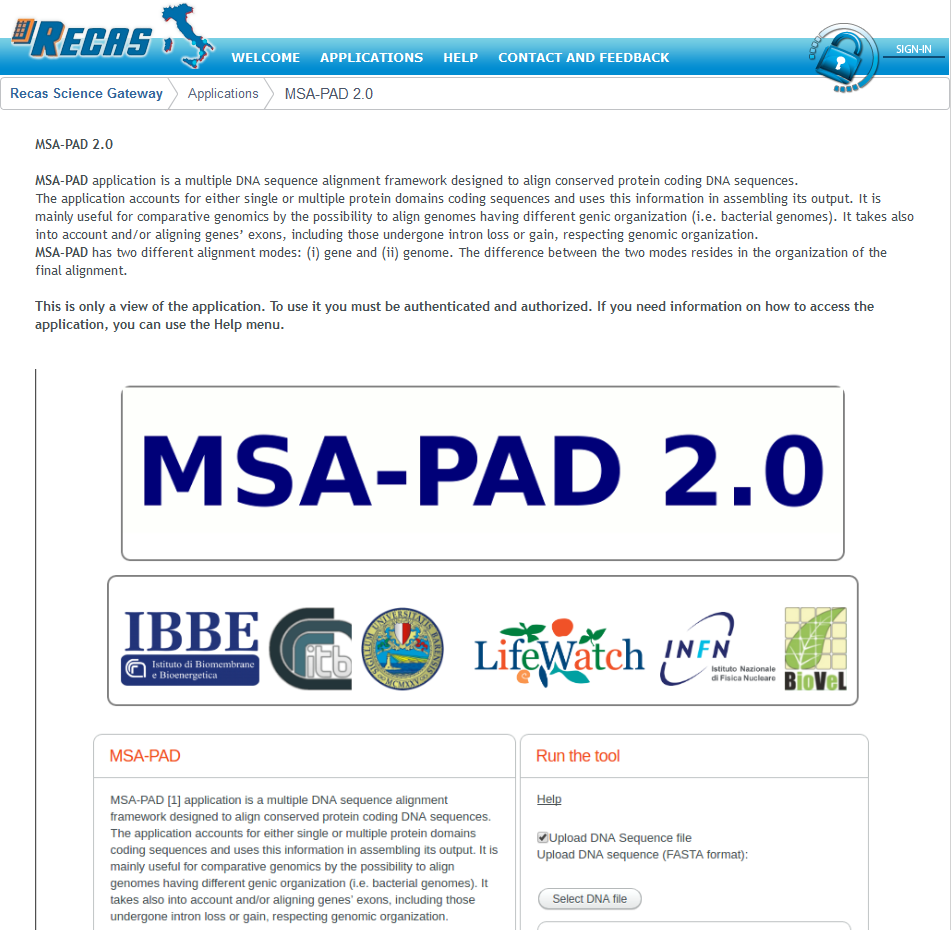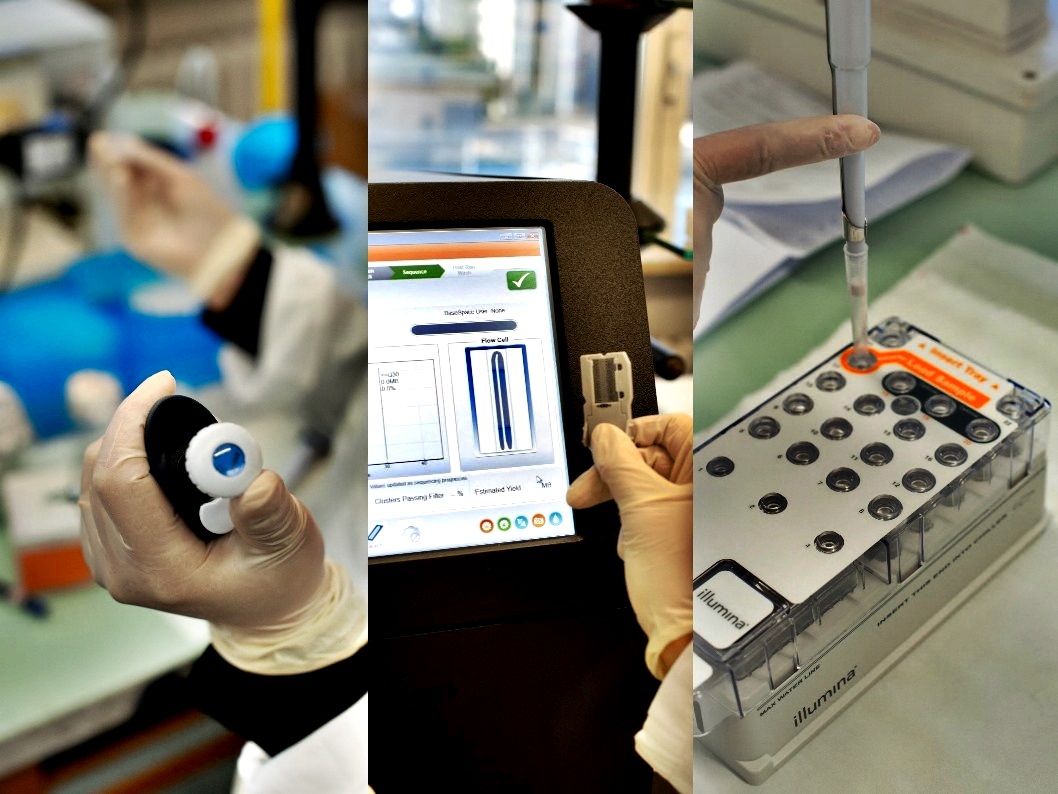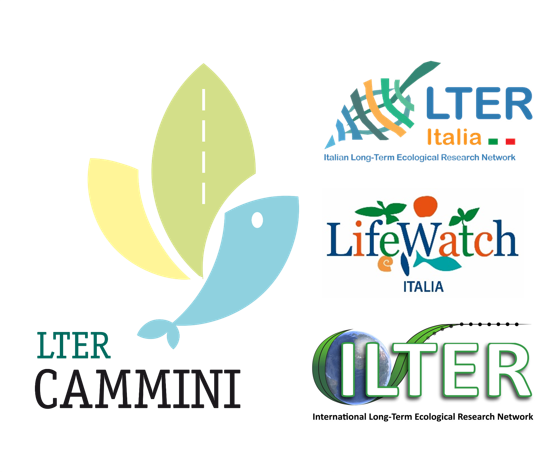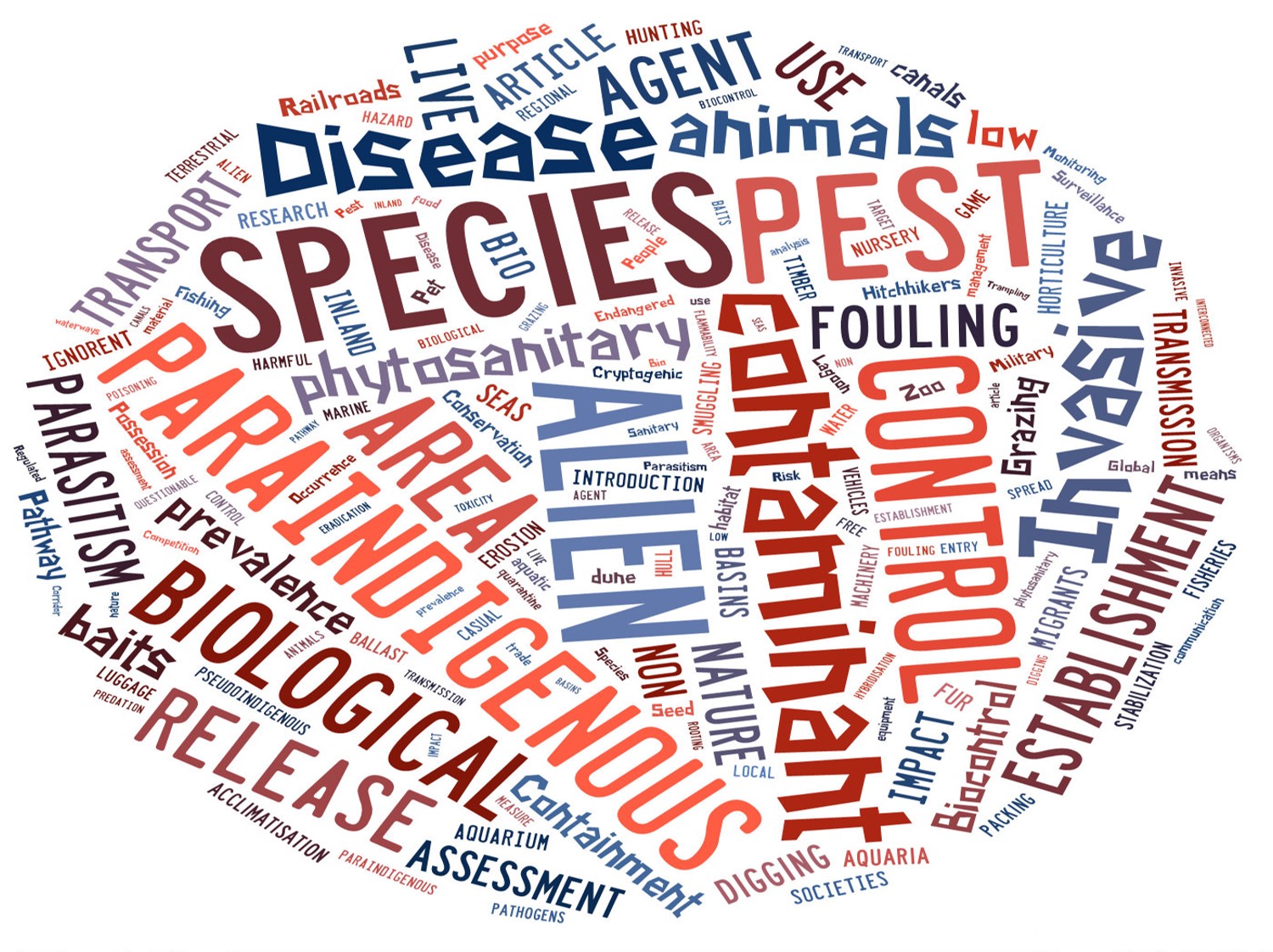LifeWatch Italy (LW-ITA) published a paper in Ecological Informatics (Rosati et al., 2017) on PhytoTraits: a thesaurus on phytoplankton functional traits.
As the other thesauri implemented by LW-ITA, PhytoTraits is the result of the interdisciplinary collaboration of experts both from the functional ecology domain and from information and communication technologies. PhytoTraits is the first initiative to deal with the semantics of phytoplankton functional traits, focusing on morpho-functional traits. It reflects the agreement of a scientific expert community to fix semantic properties of approximately 120 traits.
Following semantic web standard technologies, the thesaurus was implemented in Simple Knowledge Organization System (SKOS), a common data model based on the Resource Description Framework (RDF). Providing harmonised concepts with associated unique and resolvable URIs, PhytoTraits has the potential to significantly reduce the barriers to data discovery, integration, and exchange in the functional ecology domain.
The paper presents the PhytoTraits thesaurus focusing on the methodology used to implement it, the possible use cases of the established semantic resource, and finally discusses the usefulness of the thesaurus and of its future developments.
The paper presents the PhytoTraits thesaurus focusing on the methodology used to implement it, the possible use cases of the established semantic resource, and finally discusses the usefulness of the thesaurus and of its future developments.
